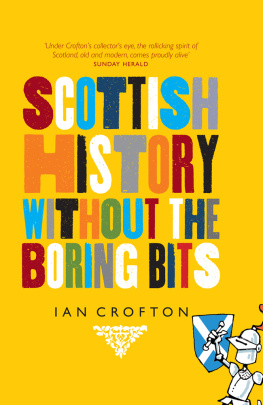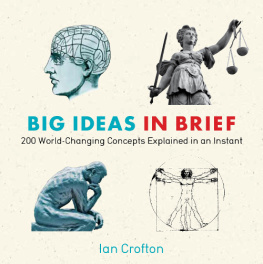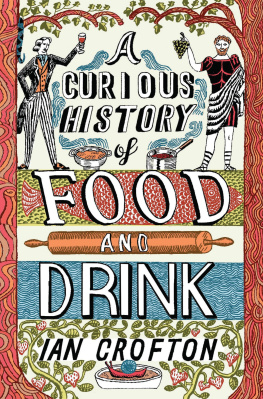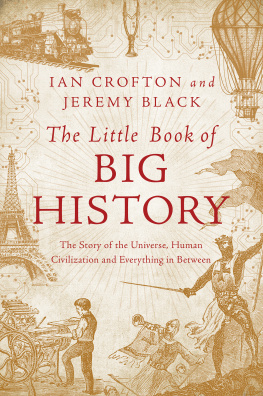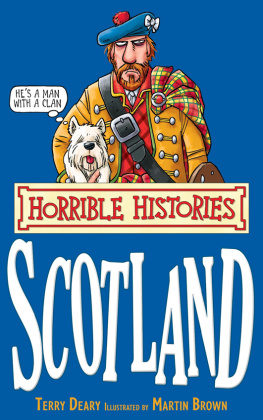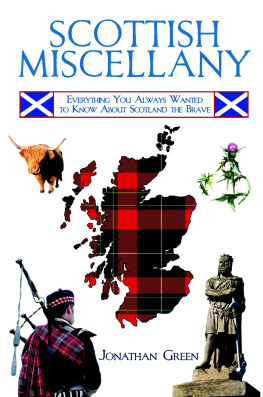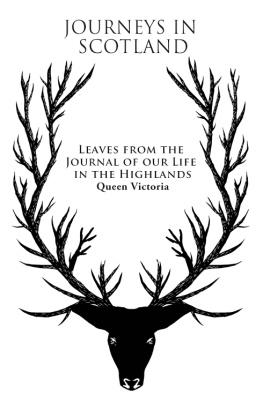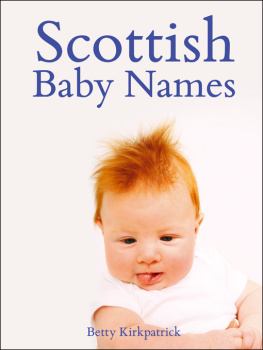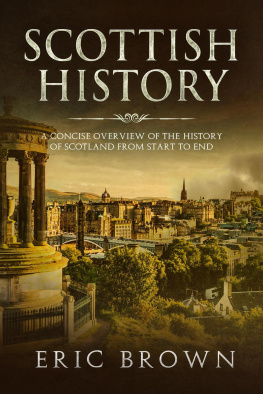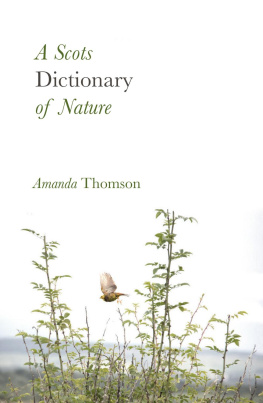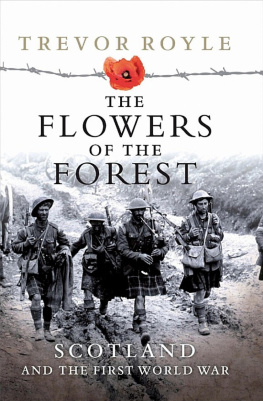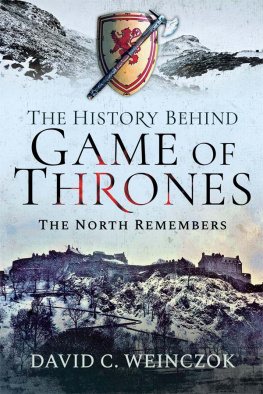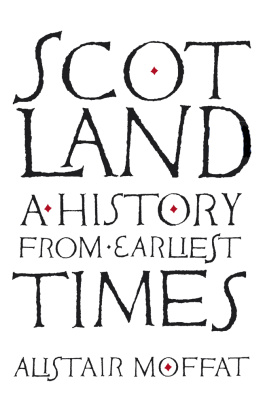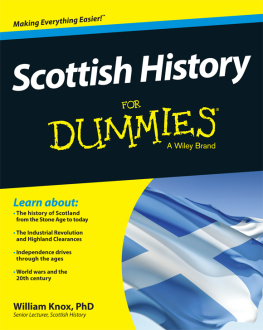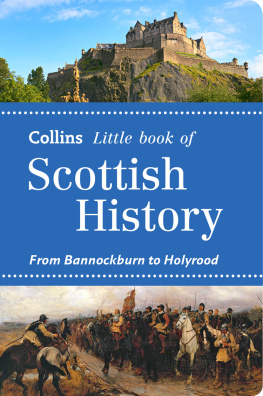A D ICTIONARY OF
S COTTISH P HRASE AND F ABLE

This ebook edition published in 2013 by
Birlinn Limited
West Newington House
Newington Road
Edinburgh
EH9 1QS
www.birlinn.co.uk
Copyright Ian Crofton 2012
The moral right of Ian Crofton to be identified as the author of this work has been asserted by him in accordance with the Copyright, Designs and Patents Act 1988
All rights reserved. No part of this publication may be reproduced, stored or transmitted in any form without the express written permission of the publisher.
eBook ISBN: 978-0-85790-637-3
Print ISBN: 978-1-84158-977-0
Version 1.0
British Library Cataloguing-in-Publication Data
A catalogue record for this book is available from the British Library
In fondest memory of my parents
J OHN C ROFTON (19122009)
and
E ILEEN C ROFTON (19192010)
who had the good sense to settle in Scotland before I was born, and who shared with me their deep love and fascination for their adopted country
I NTRODUCTION
Confessions of a Justified Scotsman
I feel a certain presumption in offering the present volume to the public.
Firstly, it takes a fair amount of hard-necked heichtynes (that fine old Scots word for temerity) to wrap oneself in the mantle of the Revd Dr Ebenezer Cobham Brewer, who back in the Victorian era initiated the whole phrase-and-fable industry. For many years Dr Brewer beavered for obscure allusions in the arcana of ancient texts, checked out the unread footnotes of dusty tomes, wandered, notebook in hand, through the baffling mazes of the worlds mythologies, gradually filling his study with card upon card, piling scholarly serendipity upon scholarly serendipity, until in 1870 he eventually gave birth to his eponymous Dictionary of Phrase and Fable. Dr Brewer modestly stated that this work almost certainly the most browsable (and possibly the most idiosyncratic) reference book ever published contained nothing but trifles too insignificant to find a place in books of higher pretension. Posterity has begged to differ, and his work is now in its 18th edition.
In defence of my authorship of the present volume, I should say that I have served a long apprenticeship in this line of work. My first proper job, beginning back in 1977, was as an editor with Wm Collins and Sons, the Glasgow-based publishers, for whom I worked on all kinds of general reference books, including encyclopedias and dictionaries of quotations, and also on books of Scottish interest. Another decade with various London publishers followed, before this particular gamekeeper turned poacher, and set up as a freelance writer. In this capacity I contributed extensively to the first and second editions of Brewers Dictionary of Modern Phrase and Fable, compiled Brewers Dictionary of Curious Titles and Brewers Cabinet of Curiosities, and wrote the Scottish (and the Irish, Welsh and Northern English) entries for Brewers Britain and Ireland, a phrase-and-fable gazetteer of these islands. It was while co-authoring the latter volume that I came to realize what a wealth of material there was for a dedicatedly Scottish dictionary of phrase and fable. I started to make notes... and to wave my antennae about... and the notes piled up, and stretched out, and found other notes to talk to...
Secondly, on the presumption front, there is the question of my identity. I have sometimes wondered whether I am sufficiently Scottish to undertake such a task as this. Although I was born and raised in Edinburgh, my father was Anglo-Irish (born in Dublin, educated in England) and my mother reared in London, the daughter of a Liverpudlian father and a Scottish mother (a Mackay whose ancestors came from Rogart in eastern Sutherland). Two years before I was born, my father took up a post at Edinburgh University (see the entry herein on the EDINBURGH METHOD ); so of my parents five children, the three eldest were born in London and the two youngest in Scotland. I was sent to an independent day school in Edinburgh, which, by the time I got there, had an English rector with ambitions to turn the place into an English public school. He was echoing the aspirations of the founders, among them Sir Walter Scott (whose ghost, more than any other, haunts the pages of this volume), to turn Scots lads into English gentlemen. Well, I wasnt sure whether I was, with my parentage, a genuine Scots lad, but I was damn well sure I didnt want to be an English gentleman...
One thing I never did acquire as every new acquaintance south of the Border immediately remarks when I inform them where I come from was a Scottish accent. So, although I wrote my MA dissertation on that masterpiece of synthetic Scots, Hugh MacDiarmids A Drunk Man Looks at the Thistle, and have immersed myself over the years in the cities, landscapes and cultures of Scotland, I must remain a mongrel outsider, no more than an adopted Scot in short, something of a fraud. But I hope that readers of the present volume will find that the proof of the pudding is in the eating.
This Dictionary of Scottish Phrase and Fable is not an encyclopedia. For those who are after a comprehensive and authoritative (and sober) reference work on Scottish people and places, nothing serves better than the admirable Collins Encyclopedia of Scotland (HarperCollins, 1994, 2000), edited by John and Julia Keay; or, for a phrase-and-fable gazetteer of Scotland, together with an elucidation of the meanings of Scottish place names, then I would suggest consulting the relevant entries in the aforementioned Brewers Britain and Ireland (Weidenfeld, 2005).
A Dictionary of Scottish Phrase and Fable does not have entries on notable Scots per se, unless they have some sobriquet or nickname as a nail to hang them on. Thus there is an entry for ROBERT THE BRUCE , in so far that it explains the sobriquet the Bruce, but does not offer a full account of his career; there is also an entry for his hostile English nickname KING HOBBE , and for the story of BRUCE AND THE SPIDER and for BRUCES CAVE not to mention the phenomenon of WALLACETHEBRUCEISM . Likewise, there is an entry for the YOUNG PRETENDER , but not for Stuart, Charles Edward; and an entry for BROON , THE and the MISERY FROM THE MANSE , but not for Brown, Gordon; for BIG ECK but not for McLeish, Alex (nor for that matter for Salmond, Alex though WEE ECK does get a look in). There is the occasional entry for historical (or legendary) characters whose stories have become so iconic (or, indeed, fabular) as to demand inclusion: thus we have the very real Flora MACDONALD (as well as her supposed maidservant, Betty BURKE ); the possibly real Jenny GEDDES ; and the almost certainly mythical Sawney BEAN . Some characters, such as R.L. Stevensons Bonny Fighter Alan BRECK , and Scotts Meg MERRILIES (based on two actual gypsies, Jean Gordon and Flora Marshal), bridge the gap between fact and fiction.
Similarly with places: only nicknames, sobriquets and curiosities with a tale to tell are included. Thus there are entries for AULD REEKIE and ATHENS OF THE NORTH , and even for DUNEDIN , but not for Edinburgh; for ARTHURS SEAT but not Ben Nevis (and for that matter for the GREY MAN OF BEN MACDUI but not for Ben Macdui); for ARCHIES ROCK , the COCK OF ARRAN and the GUTTIT HADDIE , but not for Bass Rock, Campsie Fells or North Berwick Law; and for BLYTHE ABERDEANE , the BRAIF TOUN , the CITY OF BON ACCORD , the CITY OF ST NICHOLAS , FURRY BOOTS CITY , the GRANITE CITY and the SILVER CITY but not for Aberdeen itself. Following similar principles, battles only appear if their name is not simply geographical (or if the battle is not strictly a battle): so there is the BATTLE OF THE SHIRTS and the BATTLE OF GEORGE SQUARE and the BATTLE OF THE CLANS but no Bannockburn, Flodden, Pinkie or Culloden.


